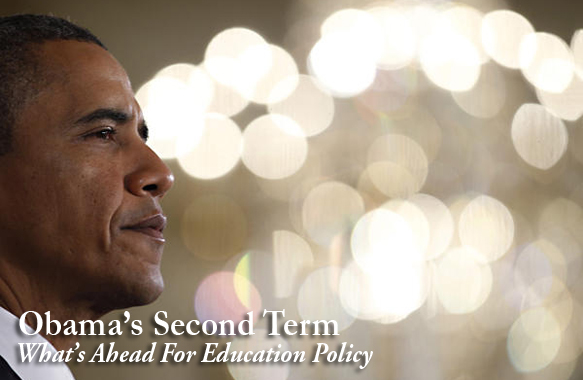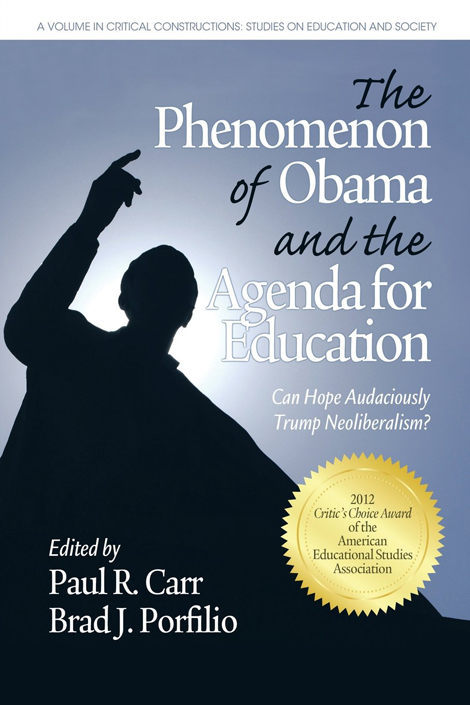By Paul L. Thomas, Ed.D. | Originally Published at The Becoming Radical. January 29, 2014
“It is rather the same thing that is happening to the English language. . . .[T]he slovenliness of our language makes it easier for us to have foolish thoughts,” Orwell (1946) warns in “Politics and the English Language.” Few examples are better for proving Orwell right than political language addressing the education of children in the U.S. But, as Orwell adds, “If one gets rid of these habits one can think more clearly, and to think clearly is a necessary first step towards political regeneration.”
Barack Obama personifies the power of personality in politics and the value of articulating a compelling vision that resonates with many voters in the US and other global citizens. For Obama’s presidential campaign, the refrain that worked was driven by two words and concepts, ”hope” and “change.” From healthcare, to war, to education reform, however, the Obama administration is proving that political discourse is more likely to mask intent—just as Orwell warned through his essays and most influential novel 1984, the source of the term “doublespeak” that characterizes well Obama’s and Secretary of Education Arne Duncan’s public comments on education reform. They mask the programs promoted and implemented by the Department of Education.
Beginning with the Reagan administration and perpetuated by Obama’s presidency are patterns of public speeches—crisis discourse and Utopian expectations—and educational policy that began with 1983’s “A Nation at Risk,” accelerated through Goals 2000, and codified without much critical concern as No Child Left Behind (NCLB) under George W. Bush and Secretary of Education Paige (Schmidt & Thomas, 2009).
Here, I will explore the neoliberal assumptions driving the language and policies related to education that came from the Obama administration and guided by Duncan. The examination will unpack Duncan’s speeches and the realities of the ideologies the administration supports through policy and public messages. The dynamic established through crisis discourse about the public education system, combined with Utopian expectations for those schools, helps mask the neoliberal assumptions embedded in what Freire (1998) calls “the bureaucratizing of the mind”: “The freedom that moves us, that makes us take risks, is being subjugated to a process of standardization of formulas, models against which we are evaluated” (p. 111).
PLEASE CONTINUE READING HERE or HERE
See also (which is being re-issued as an updated edition soon):
Thomas, P.L. (2011). Orwellian educational change under Obama: Crisis discourse, Utopian expectations, and accountability failures. Journal of Inquiry & Action in Education, 4(1), 68-92. http://digitalcommons.buffalostate.edu/cgi/viewcontent.cgi?article=1034&context=jiae













Leave A Comment